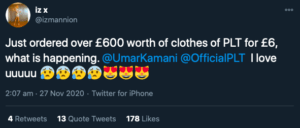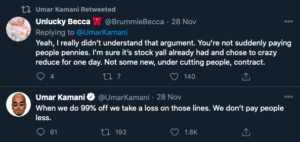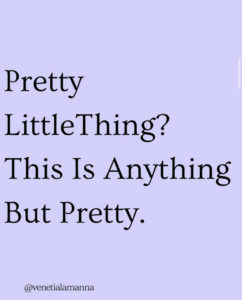Pretty Little Thing (PLT) outdid every other competitor this Black Friday with discounts of up to ninety nine per cent. Their already affordable clothing was selling for as little as 0.05p and people were able to make purchases worth of hundreds of pounds for less than a tenner.

Customers were quick to praise Umar Kamani, the CEO and founder of the brand, for his “generosity”, calling him the saviour of 2020 and “the god of fashion”.

However, the new prices made PLT an even bigger target of critics of unethical fast fashion. People began again to question the brand’s ethics and what it pays its workers in order to be able to sell its products for such low prices.

“When we do 99% off we take a loss on those lines. We don’t pay people less”, wrote Kamani on Twitter.
His fans followed shortly after to defend him and his statement.

Venetia La Manna, who is a co-founder of Remember Who Made Them – an organisation that supports garment workers – started a thread on Instagram that was immediately shared across different media. In the thread she asks questions that Pretty Little Thing and Boohoo have yet to answer.

Sustainability and ethics in fashion have been a huge issue for the past few years, and some brands have taken steps to provide affordable quality while being considerate of the planet and their workers. Whereas it seems that PLT is one of those other brands that remain unfazed both by the climate crisis and by being linked to various unethical scandals.
PLT is owned by Boohoo which was recently under fire for paying its workers in Leicester as little as £3.5 per hour and operating during a local lockdown without taking extra hygiene measures.
PLT‘s Black Friday prices are “a reminder that the industry constantly exploits BIPOC (Black, Indigenous, and people of color) through unacceptable pay and poor conditions” posted user @jamie_windust.
In response to the backlash, a Pretty Little Thing spokesperson said that they “wanted to offer something competitive and understand people may be spending less in what is usually peak shopping season.”




